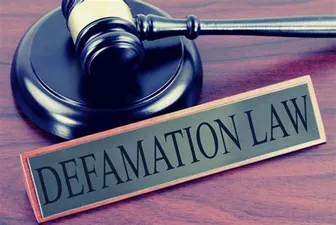
Rahul Gandhi has been able to secure a breather from the Surat Sessions Court in a criminal defamation case pertaining to the surname “Modi” case. His conviction is yet to be stayed, failing which, he stands to lose his Parliamentary seat. However, Gandhi faces a long list of defamation cases. A Patna court has directed his appearance on 12 April 2023, in a case filed by Sushil Kumar Modi. It has been reported that 10 cases of criminal defamation are pending against him. A fresh defamation complaint has been recently filed in the Haridwar court over his comment on the RSS during the Bharat Jodo Yatra earlier this year. It is, thus, worth pondering whether the legal machinery is being misused or the current politicians are failing to mind their tongue.
Law on Defamation
The Constitutional guarantee of free speech does not confer a right to harm the reputation of others. Various definitions exist for “defamation”. Broadly, it is a false statement which has the tendency to disparage the good name or reputation of another person. It could be both written or spoken. Under Indian law, defamation is both a civil and a criminal wrong. A person alleging defamation can file a civil suit for injunction and recovery of damages and at the same time file a criminal case seeking imprisonment and fine of the wrongdoer.
Civil wrong
As a civil wrong, in R. Rajagopal (1994), the Supreme Court laid down a higher threshold for a public figure to prove defamation. It was held that if a publication is based on a public record, it is a legitimate subject for comment by press and media. A mere wrong statement against a public official does not amount to defamation. In a civil court, a public figure needs to show that the statement is false and is actuated by malice or personal animosity. In Tata Sons vs. Greenpeace International, (2011), the Delhi High Court, refused to grant an injunction to restrain a publication as it would have placed unreasonable fetter on freedom of speech.
Criminal Wrong
As against a civil proceeding, definition of defamation is extensive under Section 499 of IPC. Even making an imputation in the form of an alternative or with an ironical expression amounts to defamation. Thus, a statement that “Z is an honest man; he never stole B’s watch,” intending to cause it to be believed that Z did steal B’s watch, is defamation.
A statement against a dead person, which would harm is reputation, if he was living, and is intended to be hurtful to feelings of his family or near relatives, is defamation. As against this, in a civil case, the Courts have held that in case the person alleging defamation dies, no cause of action survives in favour of his legal representatives. Section 500 of IPC provides for a 2 year imprisonment as punishment.
Civil vs. Criminal
In Subramanian Swamy vs. Union of India, (2016), the Supreme Court refused to strike down Sections 499 and 500 of the IPC as unconstitutional. The court did not accept the contentions that Section 499 of the IPC allows a greater width and discretion without any guidance for judging reputation, truth is only a qualified defence or that it allows a complainant to launch prosecution on slightest pretext on subjective notion. The court stuck to the definition of “defamation” as conceived by the Constitution framers, in contrast to, R. Rajagopal, where the court had taken into account the evolving jurisprudence in other countries.
The court did state that a Magistrate has immense responsibility while issuing summons in a complaint alleging criminal defamation. However, as the law stands today, criminal offence is predicated on an individual’s own notion about himself/herself and whether the image is lowered in the “estimation of others” directly or indirectly. The Magistrate is not empowered to consider the statements from the standpoint of a “reasonable person.” Thus, summons are issued as a matter of routine based on the complaint and pre-summoning evidence. The evidence is invariably of a person who closely knows the complainant and there is no element of an objective assessment.
In today’s digital age, when forums to express one’s views have grown, so is the threat of being prosecuted for defamation. Considering the scope and breadth of internet, a criminal complaint for defamation can be filed anywhere.
A lower threshold of criminal prosecution on the grounds of defamation provides a happy trigger point to public figures to drag their opponents to Courts. It goes without saying that the procedure of a criminal trial, is itself onerous for the accused and serves the purpose of having a chilling effect on speech. Irrespective of the legal position, it is also undeniable that in the past-decade-and-a-half, starting with comments like “maut ka saudagar,” discourse amongst the political opponents has been direct and vitriolic. The number of defamation cases has seen a steady rise. AAP leaders give good company to Rahul Gandhi in defamation matters. Some of the prominent defamation cases have been by Late Arun Jaitley and Nitin Gadkari against Arvind Kejriwal; Manish Sisodia being summoned on a complaint filed by Himanta Biswas in Assam; Delhi L-G Vijay Saxena filing a civil case against AAP leaders for their allegations regarding his tenure at Khadi and Village Industries Commission; and a case by Manish Sisodia against BJP leaders for their allegations of corruption in constructions of government school. Arvind Kejriwal has repeatedly used the forum of Legislative Assembly to make allegations against his opponents. If Rahul Gandhi succeeds in maintaining his status as MP, maybe he could follow the same and use Parliament as a better platform. In view of Article 105 of Constitution, no defamation proceedings can be initiated for statements made in the House.
With the general elections next year, the language used by public figures may become shriller. It would be interesting to see if the backdrop of recent conviction reminds politicians to mind their tongue and keep the discourse within levels of decency.

Amit Gupta, an Oxford University and Columbia Law School graduate, specialises as Counsel/Litigator in New Delhi, with focus on white collar crime, arbitration, commercial litigation, competition law, media, and intellectual property.















